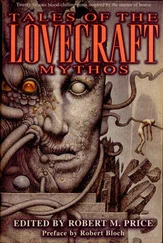Robert Pirsig - Lila. An Inquiry Into Morals
Здесь есть возможность читать онлайн «Robert Pirsig - Lila. An Inquiry Into Morals» весь текст электронной книги совершенно бесплатно (целиком полную версию без сокращений). В некоторых случаях можно слушать аудио, скачать через торрент в формате fb2 и присутствует краткое содержание. Жанр: Современная проза, на английском языке. Описание произведения, (предисловие) а так же отзывы посетителей доступны на портале библиотеки ЛибКат.
- Название:Lila. An Inquiry Into Morals
- Автор:
- Жанр:
- Год:неизвестен
- ISBN:нет данных
- Рейтинг книги:3 / 5. Голосов: 1
-
Избранное:Добавить в избранное
- Отзывы:
-
Ваша оценка:
- 60
- 1
- 2
- 3
- 4
- 5
Lila. An Inquiry Into Morals: краткое содержание, описание и аннотация
Предлагаем к чтению аннотацию, описание, краткое содержание или предисловие (зависит от того, что написал сам автор книги «Lila. An Inquiry Into Morals»). Если вы не нашли необходимую информацию о книге — напишите в комментариях, мы постараемся отыскать её.
Lila. An Inquiry Into Morals — читать онлайн бесплатно полную книгу (весь текст) целиком
Ниже представлен текст книги, разбитый по страницам. Система сохранения места последней прочитанной страницы, позволяет с удобством читать онлайн бесплатно книгу «Lila. An Inquiry Into Morals», без необходимости каждый раз заново искать на чём Вы остановились. Поставьте закладку, и сможете в любой момент перейти на страницу, на которой закончили чтение.
Интервал:
Закладка:
After some time he noticed the lamp had become dim and he stopped reading to turn up the wick.
Some time later he got his little wooden box from the pilot berth to make some slips about what he was reading.
In the hours that continued he made a dozen of them.
At another time he looked up from his reading and listened for a moment. There was not a sound. A little tilt of the boat now and then, but that was all.
There was nothing in what he was reading that suggested James was some kind of religious ideologue interested in proving some foregone conclusion about religion. Ideologues usually talk in terms of sweeping generalities and what Phædrus was reading seemed to confirm that James was about as far as you can get from these. In his early years especially, James' concept of ultimate reality was of things concrete and individual. He didn’t like Hegel or any of the German idealists who dominated philosophy in his youth precisely because they were so general and sweeping in their approach.
However, as James grew older his thoughts did seem to get more and more general. This was appropriate. If you don’t generalize you don’t philosophize. But to Phædrus it seemed that James' generalizations were heading toward something very similar to the Metaphysics of Quality. This could, of course, be the Cleveland Harbor Effect, where Phædrus' own intellectual immune system was selecting those aspects of James' philosophy that fit the Metaphysics of Quality and ignoring those that didn’t. But he didn’t think so. Everywhere he read it seemed as though he was seeing fits and matches that no amount of selective reading could contrive.
James really had two main systems of philosophy going: one he called pragmatism and the other radical empiricism.
Pragmatism is the one he is best remembered for: the idea that the test of truth is its practicality or usefulness. From a pragmatic viewpoint the squirrel’s definition of around was a true one because it was useful. Pragmatically speaking, that man never got around the squirrel.
Phædrus, like most everyone else, had always assumed that pragmatism and practicality meant virtually the same thing, but when he got down to an exact quotation of what James did say on the subject he noticed something different:
James said, Truth is one species of good, and not, as is usually supposed, a category distinct from good, and coordinate with it. He said, The true is the name of whatever proves itself to be good in the way of belief.
'Truth is a species of good.' That was right on. That was exactly what is meant by the Metaphysics of Quality. Truth is a static intellectual pattern within a larger entity called Quality.
James had tried to make his pragmatism popular by getting it elected on the coattails of practicality. He was always eager to use such expressions as cash-value, and results, and profits, in order to make pragmatism intelligible to the man in the street, but this got James into hot water. Pragmatism was attacked by critics as an attempt to prostitute truth to the values of the marketplace. James was furious with this misunderstanding and he fought hard to correct the misinterpretation, but he never really overcame the attack.
What Phædrus saw was that the Metaphysics of Quality avoided this attack by making it clear that the good to which truth is subordinate is intellectual and Dynamic Quality, not practicality. The misunderstanding of James occurred because there was no clear intellectual framework for distinguishing social quality from intellectual and Dynamic Quality, and in his Victorian lifetime they were monstrously confused. But the Metaphysics of Quality states that practicality is a social pattern of good. It is immoral for truth to be subordinated to social values since that is a lower form of evolution devouring a higher one.
The idea that satisfaction alone is the test of anything is very dangerous, according to the Metaphysics of Quality. There are different kinds of satisfaction and some of them are moral nightmares. The Holocaust produced a satisfaction among Nazis. That was quality for them. They considered it to be practical. But it was a quality dictated by low-level static social and biological patterns whose overall purpose was to retard the evolution of truth and Dynamic Quality. James would probably have been horrified to find that Nazis could use his pragmatism just as freely as anyone else, but Phædrus didn’t see anything that would prevent it. But he thought that the Metaphysics of Quality’s classification of static patterns of good prevents this kind of debasement.
The second of James' two main systems of philosophy, which he said was independent of pragmatism, was his radical empiricism. By this he meant that subjects and objects are not the starting points of experience. Subjects and objects are secondary. They are concepts derived from something more fundamental which he described as the immediate flux of life which furnishes the material to our later reflection with its conceptual categories. In this basic flux of experience, the distinctions of reflective thought, such as those between consciousness and content, subject and object, mind and matter, have not yet emerged in the forms which we make them. Pure experience cannot be called either physical or psychical: it logically precedes this distinction.
In his last unfinished work, Some Problems of Philosophy , James had condensed this description to a single sentence: There must always be a discrepancy between concepts and reality, because the former are static and discontinuous while the latter is dynamic and flowing. Here James had chosen exactly the same words Phædrus had used for the basic subdivision of the Metaphysics of Quality.
What the Metaphysics of Quality adds to James' pragmatism and his radical empiricism is the idea that the primal reality from which subjects and objects spring is value. By doing so it seems to unite pragmatism and radical empiricism into a single fabric. Value, the pragmatic test of truth, is also the primary empirical experience. The Metaphysics of Quality says pure experience is value. Experience which is not valued is not experienced. The two are the same. This is where value fits. Value is not at the tail-end of a series of superficial scientific deductions that puts it somewhere in a mysterious undetermined location in the cortex of the brain. Value is at the very front of the empirical procession.
In the past empiricists have tried to keep science free from values. Values have been considered a pollution of the rational scientific process. But the Metaphysics of Quality makes it clear that the pollution is from threats to science by static lower levels of evolution: static biological values such as the biological fear that threatened Jenner’s small-pox experiment; static social values such as the religious censorship that threatened Galileo with the rack. The Metaphysics of Quality says that science’s empirical rejection of biological and social values is not only rationally correct, it is also morally correct because the intellectual patterns of science are of a higher evolutionary order than the old biological and social patterns.
But the Metaphysics of Quality also says that Dynamic Quality — the value-force that chooses an elegant mathematical solution to a laborious one, or a brilliant experiment over a confusing, inconclusive one — is another matter altogether. Dynamic Quality is a higher moral order than static scientific truth, and it is as immoral for philosophers of science to try to suppress Dynamic Quality as it is for church authorities to suppress scientific method. Dynamic value is an integral part of science. It is the cutting edge of scientific progress itself.
Читать дальшеИнтервал:
Закладка:
Похожие книги на «Lila. An Inquiry Into Morals»
Представляем Вашему вниманию похожие книги на «Lila. An Inquiry Into Morals» списком для выбора. Мы отобрали схожую по названию и смыслу литературу в надежде предоставить читателям больше вариантов отыскать новые, интересные, ещё непрочитанные произведения.
Обсуждение, отзывы о книге «Lila. An Inquiry Into Morals» и просто собственные мнения читателей. Оставьте ваши комментарии, напишите, что Вы думаете о произведении, его смысле или главных героях. Укажите что конкретно понравилось, а что нет, и почему Вы так считаете.











